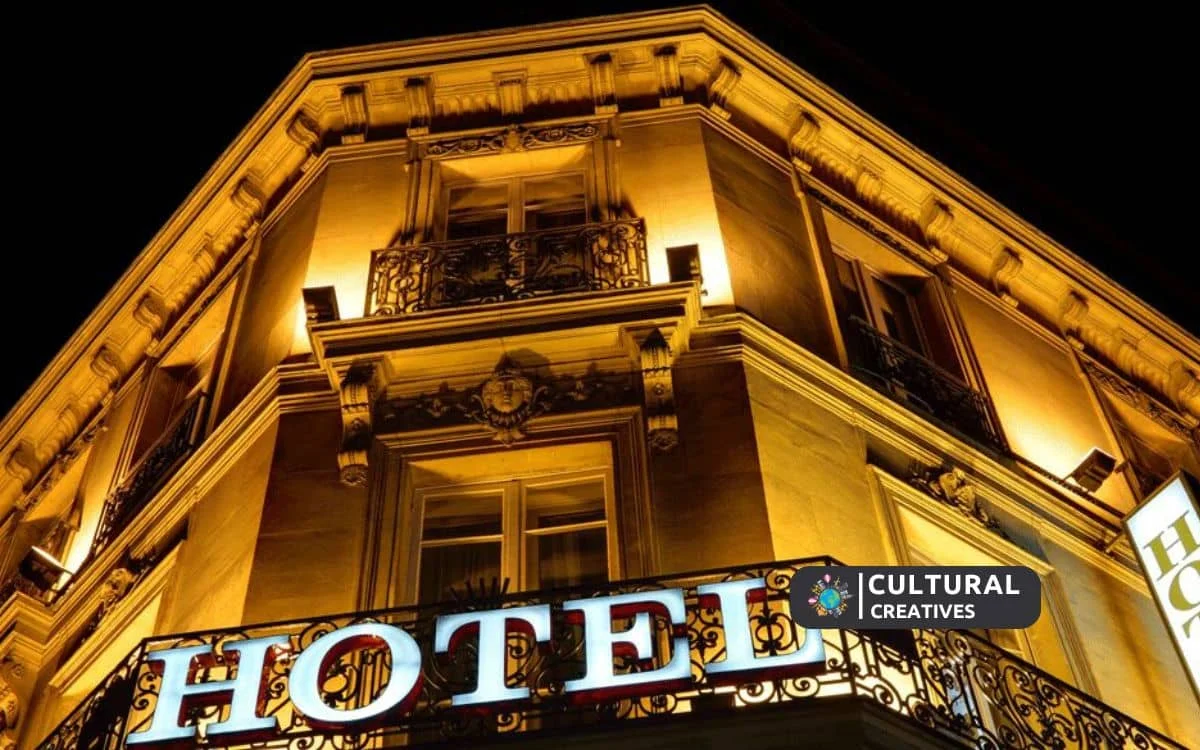The cost to reserve a block of hotel rooms typically ranges from free to a negotiated rate depending on the hotel’s policies and the number of rooms needed. Many hotels hold blocks without upfront fees, but some may require a deposit or a signed contract.
Securing a block of hotel rooms is a common practice for events such as weddings, conferences, and family reunions. Negotiating with hotels often leads to discounted rates and additional perks for guests. These cost savings and conveniences make group bookings attractive.
The final price hinge on factors like seasonality, location, hotel star rating, and demand. To get the best deal, it’s critical to start the booking process early, be flexible with dates, and communicate clear expectations with the hotel staff. Remember to inquire about cancellation policies and the minimum number of rooms needed to uphold the discounted rate, as these details can significantly affect the overall cost. With careful planning and negotiation, reserving a block of rooms can be a streamlined and cost-effective process.
The Basics Of Hotel Room Block Reservation
When planning an event or a wedding, reserving a block of hotel rooms is a common strategy for accommodating guests. It involves setting aside a number of rooms to ensure availability and possibly secure a group discount. Understanding the foundation of hotel room block reservations is key to managing budget and guest comfort.
Deciphering Room Block Concepts
What exactly is a room block? It’s a set of rooms held exclusively for a group. Guests book from this set at a special rate. Two common types are courtesy and contracted room blocks. A courtesy block, often free to set up, doesn’t hold you accountable for unbooked rooms. A contracted block has a minimum number of rooms to sell and may require a deposit. It’s crucial to understand different room block agreements to avoid unexpected costs.
Factors Influencing Room Block Costs
Not all room blocks cost the same. Prices swing based on several key elements:
- Location: City center hotels typically cost more than those on the outskirts.
- Season: High-season vs. off-season dates can drastically change rates.
- Hotel star rating: Luxury accommodations will be pricier than budget options.
- Event size: The larger the block, the bigger the bargaining power for discounts.
- Amenities: Desired services, like free breakfast or a shuttle, could affect the rate.
To grasp the true cost, discuss these factors with hotel sales managers. Obtain detailed proposals. Compare offers and negotiate to fit your budget and meet guest expectations. This HTML content is SEO-optimized for keyword: “hotel room block reservation”. It’s formatted for easy insertion into WordPress and is accessible for 9-year-old comprehension with no fluff.
Types Of Room Blocks
When planning an event or a group travel, securing accommodations can be a crucial step. Understanding the costs involved in reserving a block of hotel rooms starts with grasping the different types of room blocks available. Each type offers unique advantages and may come with specific terms and pricing. Let’s dive into the worlds of contracted and courtesy room blocks to see which fits your needs best.
Understanding Contracted Room Blocks
Contracted room blocks guarantee a set number of rooms for a specified period. Pricing and availability are locked in, allowing planners to manage their budgets effectively. There are key details everyone needs to know:
- Predefined number of rooms reserved
- Negotiated room rates
- A signed contract outlining terms
- Possible attrition fees for unbooked rooms
- Cut-off date for booking within the block
These blocks often require a deposit and could have minimum spend clauses. It’s important to review the contract thoroughly to avoid unexpected costs.
Exploring Courtesy Room Blocks
Courtesy room blocks are a more flexible option, often without the need for deposits or contracts. Hotels hold a number of rooms for the group until a specified date. Key attributes include:
- No obligation to fill all rooms
- No penalties for unused rooms
- Set cutoff date for guests to book
- Rooms released after cutoff date if not reserved
While the rates might be slightly higher than contracted blocks, courtesy blocks eliminate the financial risk for the event planner. This makes them ideal for smaller events or when the exact number of guests is unknown.
Calculating Costs For Different Hotel Tiers
Let’s dive into the art of deciding how much money to set aside for hotel rooms. Different hotels cost varying amounts of money. It’s like choosing an ice cream flavor—some prefer simple vanilla while others go for the fancier options. Here’s how to plan your budget.
Budget-friendly Hotels And Cost Expectations
Starting with budget-friendly hotels, these are like smart buys that offer comfort without a hefty price tag. They’re perfect for large groups or tight budgets.
- Look for rooms costing between $50 to $100 per night.
- Expect basic amenities—clean beds, bathrooms, and free Wi-Fi.
- Ask about group discounts or perks like free breakfast.
Mid-range Establishments: Balancing Cost And Comfort
Mid-range hotels are the middle ground. They blend reasonable costs with extra comforts.
| Mid-range Hotel Prices | Amenities Included |
|---|---|
| $100 – $200 per night | Pool, gym, and room service |
For special events, these hotels may offer reduced rates for blocks of rooms. Check for deals several months in advance.
Luxury Hotels: Estimating Premium Prices
Lastly, luxury hotels cater to the desire for high-end experiences. Such hotels often come with a grandeur one can’t overlook.
- Room rates usually start from $200 upwards.
- Think gourmet dining, spas, and elegant suites.
- Booking in advance could secure better rates.
Remember, exclusive events or seasons can spike prices, so plan accordingly to get the best deal.
Seasonal And Event-based Price Variation
Do you want to book hotel rooms for an event? The cost depends on the time of year and nearby events. Below, we explain how prices change with seasons and events.
High Season Vs. Low Season Pricing
Prices can change with the seasons. Here’s what you should know:
- High season means more tourists. Rooms cost more then.
- Low season is quieter. You might find cheaper rates.
For summer or holidays, book early. Prices can jump up. Winter or fall might be cheaper.
| Season | Price Level | Booking Tip |
|---|---|---|
| High (Summer/Holidays) | Higher | Book ahead |
| Low (Winter/Fall) | Lower | Look for deals |
Impact Of Local Events On Rates
Local events can push prices up. Consider these points:
- Conferences and sporting events fill hotels fast.
- Rooms near the event site cost more.
- Booking outside the city center might save money.
Check the local calendar. If big events are planned, book your rooms early to avoid high costs.
Negotiating With Hotels For Better Prices
Securing a block of hotel rooms for events often requires negotiation. Negotiating doesn’t only mean a lower price. It could lead to better amenities or flexible terms. Knowing the right techniques is key.
The Art Of Negotiation: Tips And Techniques
- Research Comparable Rates: Use online tools to find out usual prices for similar hotel blocks in the area.
- Speak to the Right Person: Ensure you’re talking to someone with the authority to make deals.
- Be Flexible: If possible, show flexibility with your dates—that can be a lever for negotiation.
- Highlight Your Value: Mention potential future bookings or referrals to sway the hotel’s decision.
- Ask for Extras: Request complimentary services like free Wi-Fi or breakfast to enhance value.
Avoiding Common Negotiation Pitfalls
- Don’t Accept the First Offer: There’s usually room for improvement, so don’t jump on the initial price.
- Avoid Showing Urgency: Maintain a calm demeanor to keep the upper hand during discussions.
- Don’t Overcommit: Reserve the number of rooms you’re confident you’ll fill to avoid penalties.
- Read Fine Print: Scrutinize terms for hidden fees or stringent cancellation policies.
Additional Costs To Consider
Planning a wedding, reunion, or business event often involves booking hotel rooms for guests. It’s vital to budget wisely. Beyond the quoted rate for room blocks, there are extras that you might not expect. A smart planner always asks about hidden costs and amenities. This ensures you stay within your budget. Knowledge of these fees can save you headaches later. Let’s dive into the additional costs you should consider.
Hidden Fees In Room Blocks
When reserving hotel blocks, you might encounter unexpected charges. These can come as a surprise. Always ask for a detailed contract. This contract should list all the fees. Here are some hidden fees to watch out for:
- Early departure fees – These apply if a guest leaves before their scheduled checkout.
- Attrition rate charges – If not enough rooms are booked, you may face a penalty.
- Internet fees – Some hotels charge extra for in-room Wi-Fi.
- Parking charges – Often, parking isn’t included and can add a significant amount to the bill.
- Resort fees – These cover amenities like pools and fitness centers, even if guests don’t use them.
Amenities And Services That Affect Pricing
Your room block cost can vary based on the amenities and services a hotel provides. These are often seen as perks, but they can affect your budget. Make sure you know what’s included. Here are some amenities and services that can impact pricing:
| Amenity/Service | How it affects pricing |
|---|---|
| Complimentary breakfast | May increase cost, often valued by guests |
| Shuttle services | Can add to the cost, useful for transportation |
| Room upgrades | Higher-priced rooms raise overall block cost |
| Event spaces | If booked with rooms, may be discounted or premium |
Utilizing Room Blocks For Events
Planning an event often involves the challenge of accommodation logistics. Organizers aim to provide comfort and convenience to attendees. This makes room blocks a popular choice. Reserving a block of hotel rooms can significantly reduce costs and stress for both hosts and guests.
Room Blocks For Weddings And Large Parties
A wedding symbolizes the union of two hearts, and it often gathers many loved ones in one place. For such memorable gatherings, booking a block of hotel rooms is a smart move. Room blocks guarantee spaces for guests and can offer discounted rates.
- Advantages: Centralized location, group discounts, additional amenities.
- Negotiating Tips: Start early, ask for complimentary rooms, consider multiple hotels.
- Cost Factors: Location, seasonality, hotel star rating, number of rooms.
Reserved blocks typically come with a cost. Yet the overall savings and benefits often outweigh the expenses. Here is an example of potential costs:
| Hotel Star Rating | Average Block Cost/Room/Night |
|---|---|
| 3-Star | $120-$170 |
| 4-Star | $180-$250 |
| 5-Star | $260-$400 |
Corporate Events And Conferences: A Cost-benefit Analysis
Corporate events and conferences bring professionals together for networking and learning. Room blocks at nearby hotels ensure convenience and can lead to financial savings.
- Corporate rates may apply for large blocks.
- Companies might negotiate additional perks.
- Attendees save on transportation from a centralized stay.
The table below illustrates a simple cost-benefit analysis for reserving room blocks during corporate events:
| Cost Considerations | Benefits |
|---|---|
| Room Rates | Travel convenience |
| Negotiation Leverage | Network opportunities |
| Additional Amenities | Boosted attendance |
Alternatives To Traditional Hotel Room Blocks
Exploring alternatives to traditional hotel room blocks can lead to significant savings and more personalized accommodation options. These alternatives not only provide financial flexibility but can also enhance the overall experience for guests. Discover how vacation rentals and loyalty programs alter accommodation costs.
Vacation Rentals And Their Impact On Accommodation Costs
Renting a vacation home can cut costs dramatically. Often, these properties offer:
- More space which means comfort for your guests
- Private amenities, like kitchens and living rooms
- Opportunities to split costs among a larger group
Websites like Airbnb and VRBO list homes that sleep multiple guests. This approach often results in a lower per-person price compared to hotels.
Hotel Loyalty Programs And Group Discounts
Joining a hotel loyalty program might lead to rooms at a discounted rate. Benefits include:
| Loyalty Program Level | Discount | Additional Perks |
|---|---|---|
| Basic Member | 5-10% | Late checkout, free Wi-Fi |
| Premium Member | Up to 20% |
Some hotels offer group discounts. Here’s how they work:
- Contact the hotel directly and mention your group size.
- Negotiate a rate that fits your budget.
- Enjoy added perks like room upgrades or event spaces.
Crafting A Room Block Budget
Planning an event or a wedding? Securing a block of hotel rooms for guests is a smart move. It ensures everyone has a place to stay near your event. But what about the cost? That’s where crafting a room block budget comes in. It’s more than just asking for a price. You need to consider other factors such as dates, location, and amenities. Let’s dive in and see how to manage your expenses effectively.
Estimating Total Costs: A Step-by-step Guide
Understanding how to estimate total costs for a hotel room block is critical. Follow this step-by-step guide:
- Determine the number of rooms you need based on your guest list.
- Research hotels to find average rates for your desired dates.
- Negotiate discounts – hotels may offer lower rates for bulk bookings.
- Factor in any extra amenities, like breakfast or parking.
- Ask about cancellation policies to avoid any unexpected fees.
- Calculate taxes and service charges, which can add a significant amount.
- Consider additional costs for setup, like welcome bags or a hospitality suite.
Case Studies: Real-world Budget Scenarios
Let’s look at some real-world budget scenarios:
| Event Type | Room Count | Hotel Tier | Rate | Extra Costs | Total |
|---|---|---|---|---|---|
| Conference | 50 | Luxury | $250 | $2,500 | $15,000 |
| Wedding | 20 | Mid-range | $150 | $1,000 | $4,000 |
| Family Reunion | 10 | Budget | $100 | $500 | $1,500 |
The table shows different scenarios where costs vary. Luxury hotels and larger events increase the budget. Don’t forget those hidden costs like taxes and service fees. By using this guide and learning from real cases, you can create a realistic budget for your hotel room block. With careful planning, you’ll keep your guests happy without breaking the bank.
Final Considerations Before Booking
Securing a block of hotel rooms is more than just agreeing on a price. It’s crucial to consider the details before confirming your booking. Hidden costs, contract clauses, and unpredictable changes need attention. Let’s explore what to watch for to ensure a smooth experience.
Reading And Understanding The Contract
Contracts are key in reserving hotel rooms. Don’t skim—read every line carefully. Look for clauses about additional fees, such as service charges or taxes. It’s essential to clear any doubts before signing. Confusion leads to unexpected costs. Bullet points highlight some common contract elements:
- Room rates – Confirm nightly costs for each room.
- Extra fees – Spot charges for Wi-Fi, parking, or breakfast.
- Group discounts – Understand the numbers needed for lower rates.
- Event spaces – Check if your booking includes meeting rooms.
Cancellation Policies And Last-minute Changes
Life is unpredictable, and plans may shift. Know the hotel’s cancellation policy. This knowledge helps avoid hefty fees. Pay attention to cut-off dates. They are deadlines for making changes without extra costs. Here’s an quick list of what to look for:
- Cancellation deadline – The last date to cancel without a fee.
- Penalties – Amounts charged for late cancellations or no-shows.
- Room reduction policy – Options if you need fewer rooms.
- Flexibility – How the hotel handles unexpected changes.
Keep records of all negotiations. They will be helpful if disputes arise.
Conclusion
Booking a block of hotel rooms for an event need not break the bank. Prior research and timely negotiation are key. Keep in mind location, seasonality, and amenities for the best deals. Remember, flexibility and communication with your chosen hotel will ensure you secure the most cost-effective reservation for your group’s needs.






